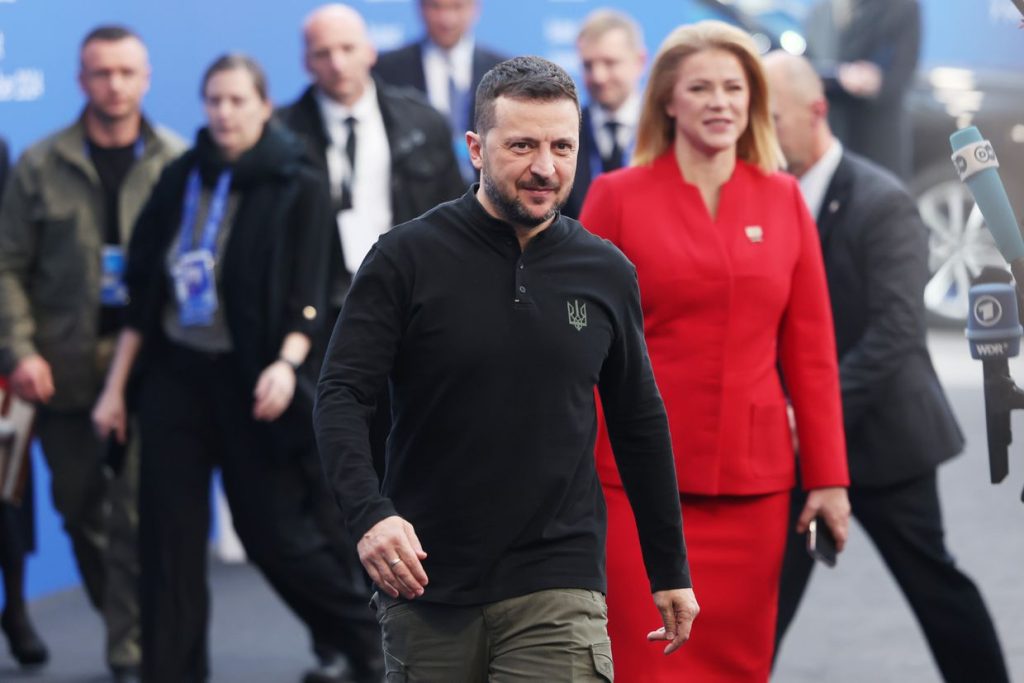Ukraine’s President Volodymyr Zelensky recently attended the European Political Community Summit in Budapest to address various pressing issues, including Russia’s full-scale invasion of Ukraine and the escalating situation in the Middle East. With Donald Trump winning the U.S. presidential election, there are uncertainties for Ukraine and Europe, especially in terms of security implications. Zelensky emphasized the need to discuss security challenges in Europe and explore new opportunities for all partners during the summit. The meeting was organized by European Council President Charles Michel and Hungarian Prime Minister Viktor Orban, with the latter expressing optimism about Trump’s victory and its potential impact on future plans.
One of the key topics at the summit was Trump’s plans for ending Russia’s war against Ukraine. Trump has previously suggested that he could end the conflict within 24 hours, but the specifics of his plan remain unclear. European leaders viewed Trump’s victory as a wake-up call for their countries to take more responsibility for their own security and to invest more in Ukraine’s defense. This perspective highlights the shifting dynamics within the European political landscape and the need for strategic reassessments in light of changing leadership in the United States.
Orban, known for his populist and illiberal stance, has maintained close ties with Russia throughout the conflict in Ukraine. His optimistic outlook on Trump’s victory and the potential for “big plans for the future” suggest a possible realignment in European politics, with implications for regional security and cooperation. The summit provided a platform for discussions on these evolving dynamics and the need for collective responses to the challenges posed by Russia’s actions in Ukraine and the broader geopolitical context.
Zelensky’s participation in the European Political Community Summit signifies Ukraine’s commitment to engaging with European partners and addressing common security concerns. The ongoing conflict with Russia remains a central issue for Ukraine, and Trump’s presidency introduces new variables into the equation. As discussions unfold at the summit, the focus is likely to be on coordinating responses, enhancing cooperation, and exploring diplomatic pathways to resolve the conflict in Ukraine and mitigate the broader regional impact of Russia’s actions.
The summit’s agenda also includes deliberations on broader security challenges in Europe, reflecting the complex and interconnected nature of contemporary geopolitics. The Middle East escalation adds another layer of complexity to the discussions, requiring a nuanced approach to addressing regional conflicts and fostering stability in the wider European context. The summit serves as a platform for European leaders to exchange ideas, coordinate strategies, and reaffirm their commitment to safeguarding peace and security in the region.
In conclusion, the European Political Community Summit in Budapest offered a timely opportunity for European leaders to address pressing security issues, including Russia’s invasion of Ukraine and the evolving geopolitical landscape following Trump’s election victory. The discussions at the summit underscore the need for collective action, strategic cooperation, and diplomatic engagement to navigate the complex challenges facing Europe and the broader international community. As Ukraine, Europe, and the United States navigate this uncertain terrain, the summit lays the groundwork for ongoing dialogue, coordination, and collaboration in pursuit of peace, stability, and security in the region.


